The local bourse retreated during March, taking direction from the global markets which were spooked by a looming trade war. JSE heavyweight Naspers also took a knock as its most valuable asset, Chinese internet company Tencent, retreated on global pressure on tech companies. The JSE all share index tumbled 4.2%. The biggest loser was the consumer services sector, which houses Naspers, declining 8.9%. Financials lost 4%; industrials, 3.5%; and basic materials 1.2%. Only the consumer goods sector was positive, edging up 0.1%. And the rand was flat against the dollar during the period.
Against this backdrop it was generally not a great month for both local and global ETFs. Our local broad top 40-based funds retreated. Our favourite, the Satrix SA Quality ETF, declined 3.28%. However, the CoresShares S&P Top50 ETF recorded a positive gain of 3.5%.
The international view
On the international scene trade wars, a tech backlash and monetary policy tightening dominated headlines during March. The former two were largely responsible for the poor showing of the S&P500 and other global markets.
The local view:
It was a huge relief that Moody’s affirmed SA’s foreign and local currency investment grade credit ratings, and revised the outlook on the ratings from negative to stable. This means that all three major credit rating agencies (Fitch and S&P are the others) now have a stable outlook on SA’s ratings. For the near future, this removes the risk that SA bonds will fall out of key global bond indices.
ETFs featured
International:
Satrix MSCI Emerging - Ashburton Global 1200
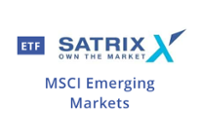 -
-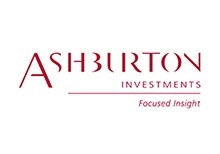
We also split international equities into developed and developing markets. Not all categories are right for all investors; you want to choose asset classes that meet your unique risk and return objectives.
Domestic:
Satrix SA Quality

We like this ETF because it reduces the concentration risk that has come to dominate the top 40 index as it caps the weight of each counter and sector.
Bonds and Cash:
NewFunds TRACI 3 Month - Satrix ILBI
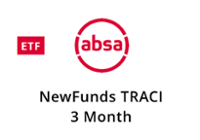 -
- 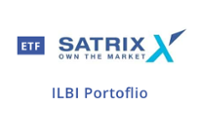
Bonds and cash are good additions to portfolios not only because of their diversification qualities but also for their ability to enhance returns.
Dividend:
Satrix Property
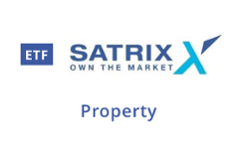
Naturally, Satrix Dividend Plus and CoreShares S&P South Africa Dividend Aristocrats come to mind here, but similarly, property funds are high dividend payers.
Multi-Asset:
NewFunds Mapps Growth - NewFunds Mapps Protect
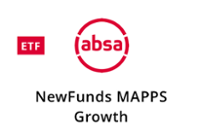 -
-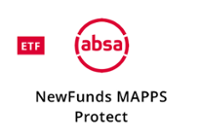
If you find the process of diversifying your portfolio daunting,
there are two ETFs that are diversified already.
Newly Listed:
NewFunds Low Volatility - NewFunds Value Equity
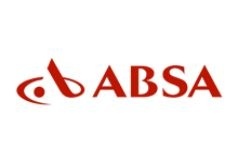 -
-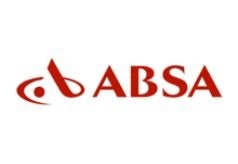
Absa, working with Wits University, recently introduced two new ETFs: Absa NewFunds Low Volatility and Absa NewFunds Value Equity. An interesting feature of these two new smart beta funds is that they are risk-weighted, which deviates from the usual market-cap weighting.
You can read up on Intellidex's market summary, strategy, and April picks here
Background: Exchange-traded funds (ETFs)
Exchange-traded funds (ETFs) are passively managed investment funds that track the performance of a basket of pre-determined assets. They are traded the same way as shares and the main difference is that whereas one share gives exposure to one company, an ETF gives exposure to numerous companies in a single transaction. ETFs can be traded through your broker in the same way as shares, say, on the EasyEquities platform. In addition, they qualify for the tax-free savings account, where both capital and income gains accumulate tax free.
Benefits of ETFs
- Gain instant exposure to various underlying shares or bonds in one transaction
- They diversify risk because a single ETF holds various shares
- They are cost-effective
- They are liquid – it is usually easy to find a buyer or seller and they trade just like shares
- High transparency through daily published index constituents
If you thought this blog was interesting, you should also read:
Disclaimer
This research report was issued by Intellidex (Pty) Ltd. Intellidex aims to deliver impartial and objective assessments of securities, companies or other subjects. This document is issued for information purposes only and is not an offer to purchase or sell investments or related financial instruments. Individuals should undertake their own analysis and/or seek professional advice based on their specific needs before purchasing or selling investments. The information contained in this report is based on sources that Intellidex believes to be reliable, but Intellidex makes no representations or warranties regarding the completeness, accuracy or reliability of any information, facts, estimates, forecasts or opinions contained in this document. The information, opinions, estimates, assumptions, target prices and forecasts could change at any time without prior notice. Intellidex is under no obligation to inform any recipient of this document of any such changes. Intellidex, its directors, officers, staff, agents or associates shall have no liability for any loss or damage of any nature arising from the use of this document.
Remuneration
The opinions or recommendations contained in this report represent the true views of the analyst(s) responsible for preparing the report. The analyst’s remuneration is not affected by the opinions or recommendations contained in this report, although his/her remuneration may be affected by the overall quality of their research, feedback from clients and the financial performance of Intellidex (Pty) Ltd.
Intellidex staff may hold positions in financial instruments or derivatives thereof which are discussed in this document. Trades by staff are subject to Intellidex’s code of conduct which can be obtained by emailing mail@intellidex.coza.
Intellidex may also have, or be seeking to have, a consulting or other professional relationship with the companies mentioned in this report.